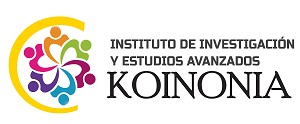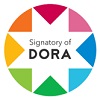Efectos de la musicoterapía en la neurorrehabilitación de adultos con daño cerebral adquirido
Resumen
Se tuvo como objetivo del articulo analizar los efectos de la musicoterapia en la neurorrehabilitación de adultos con daño cerebral adquirido. Se empleó un estudio de tipo descriptivo documental en una muestra consultada en 19 investigaciones publicadas en PubMed con prevalencia a los últimos 5 años en un 75% de la muestra estudiada. Se denota el uso favorable de los efectos de la musicoterapia en la neurorrehabilitación de adultos con daño cerebral adquirido, por cuanto permite estimular la parte sensoria, afectiva, motora, del paciente así como de sus acompañantes cuidadores, siendo necesario la realización de mayor evidencia a partir de estudios experimentales con la finalidad de fortalecer o desechar el uso de esta terapia emergente como una alternativa reconocida por las autoridades sanitarias respectivas.
Descargas
Citas
Choi, J. B., Yang, S. W., & Ma, S. R. (2022). The Effect of Action Observation Combined with Motor Imagery Training on Upper Extremity Function and Corticospinal Excitability in Stroke Patients: A Randomized Controlled Trial. International journal of environmental research and public health, 19(19), 12048. https://doi.org/10.3390/ijerph191912048
Dubé, C., Jin, Y., Powers, B. G., Li, G., Labelle, A., Rivers, M. S., Gumboc, I. M., & Bussières, A. E. (2021). Vision Evaluation Tools for Adults With Acquired Brain Injury: A Scoping Review. Canadian journal of occupational therapy. Revue canadienne d'ergotherapie, 88(4), 340–351. https://doi.org/10.1177/00084174211042955
Federación española de daño cerebral. (2020). Qué es y causas principales [What it is and main causes]. Recuperado de https://fedace.org/dano-cerebral
Gassner, L., Geretsegger, M., & Mayer-Ferbas, J. (2022). Effectiveness of music therapy for autism spectrum disorder, dementia, depression, insomnia and schizophrenia: update of systematic reviews. European journal of public health, 32(1), 27–34. https://doi.org/10.1093/eurpub/ckab042
Gómez, I. (2008). El daño cerebral sobrevenido: un abordaje transdisciplinar dentro de los servicios sociales [Acquired brain damage: a transdisciplinary approach within social services]. Psychosocial Intervention, 17(3), 237-244.
Haire, C. M., Tremblay, L., Vuong, V., Patterson, K. K., Chen, J. L., Burdette, J. H., Schaffert, N., & Thaut, M. H. (2021). Therapeutic Instrumental Music Training and Motor Imagery in Post-Stroke Upper-Extremity Rehabilitation: A Randomized-Controlled Pilot Study. Archives of rehabilitation research and clinical translation, 3(4), 100162. https://doi.org/10.1016/j.arrct.2021.100162
Haire, C. M., Vuong, V., Tremblay, L., Patterson, K. K., Chen, J. L., & Thaut, M. H. (2021). Effects of therapeutic instrumental music performance and motor imagery on chronic post-stroke cognition and affect: A randomized controlled trial. NeuroRehabilitation, 48(2), 195–208. https://doi.org/10.3233/NRE-208014
Jones C. (2020). The Use of Therapeutic Music Training to Remediate Cognitive Impairment Following an Acquired Brain Injury: The Theoretical Basis and a Case Study. Healthcare (Basel, Switzerland), 8(3), 327. https://doi.org/10.3390/healthcare8030327
Jones, C., Richard, N., & Thaut, M. (2021). Investigating music-based cognitive rehabilitation for individuals with moderate to severe chronic acquired brain injury: A feasibility experiment. NeuroRehabilitation, 48(2), 209–220. https://doi.org/10.3233/NRE-208015
Lam, H. L., Li, W. T. V., Laher, I., & Wong, R. Y. (2020). Effects of Music Therapy on Patients with Dementia-A Systematic Review. Geriatrics (Basel, Switzerland), 5(4), 62. https://doi.org/10.3390/geriatrics5040062
López-de-Arróyabe-Castillo, E, & Calvete-Zumalde, E. (2013). Daño cerebral adquirido: percepción del familiar de las secuelas y su malestar psicológico [Acquired brain injury: Family perceptions of the sequels and their psychological distress]. Clínica y Salud, 24(1), 27-35. https://dx.doi.org/10.5093/cl2013a4
Magee, W. L., Clark, I., Tamplin, J., & Bradt, J. (2017). Music interventions for acquired brain injury. The Cochrane database of systematic reviews, 1(1), CD006787. https://doi.org/10.1002/14651858.CD006787.pub3
Miranda, M., Hazard, S., & Miranda, P. (2017). La música como una herramienta terapéutica en medicina [Music as a therapeutic tool in medicine]. Revista chilena de neuro-psiquiatría, 55(4), 266-277. https://dx.doi.org/10.4067/s0717-92272017000400266
Rusowicz, J., Szczepańska-Gieracha, J., & Kiper, P. (2022). Neurologic Music Therapy in Geriatric Rehabilitation: A Systematic Review. Healthcare (Basel, Switzerland), 10(11), 2187. https://doi.org/10.3390/healthcare10112187
Wang, S., & Agius, M. (2018). The use of Music Therapy in the treatment of Mental Illness and the enhancement of Societal Wellbeing. Psychiatria Danubina, 30(Suppl 7), 595–600.
Witusik, A., & Pietras, T. (2019). Music therapy as a complementary form of therapy for mental disorders. Polski merkuriusz lekarski: organ Polskiego Towarzystwa Lekarskiego, 47(282), 240–243.
Xu, C., He, Z., Shen, Z., & Huang, F. (2022). Potential Benefits of Music Therapy on Stroke Rehabilitation. Oxidative medicine and cellular longevity, 2022, 9386095. https://doi.org/10.1155/2022/9386095
Yang, Y., Fang, Y. Y., Gao, J., & Geng, G. L. (2019). Effects of Five-Element Music on Language Recovery in Patients with Poststroke Aphasia: A Systematic Review and Meta-Analysis. Journal of alternative and complementary medicine (New York, N.Y.), 25(10), 993–1004. https://doi.org/10.1089/acm.2018.0479
Yoo, P. Y., Scott, K., Myszak, F., Mamann, S., Labelle, A., Holmes, M., Guindon, A., & Bussieres, A. E. (2020). Interventions Addressing Vision, Visual-perceptual Impairments Following Acquired Brain Injury: A Cross-sectional Survey. Canadian journal of occupational therapy. Revue canadienne d'ergotherapie, 87(2), 117–126. https://doi.org/10.1177/0008417419892393
Derechos de autor 2023 Marcela Elizabeth Vera-Mera, Mercédez Elizabeth Mera-Martínez

Esta obra está bajo licencia internacional Creative Commons Reconocimiento-NoComercial-CompartirIgual 4.0.
CC BY-NC-SA : Esta licencia permite a los reutilizadores distribuir, remezclar, adaptar y construir sobre el material en cualquier medio o formato solo con fines no comerciales, y solo siempre y cuando se dé la atribución al creador. Si remezcla, adapta o construye sobre el material, debe licenciar el material modificado bajo términos idénticos.
OAI-PMH URL: https://cienciamatriarevista.org.ve/index.php/cm/oai














